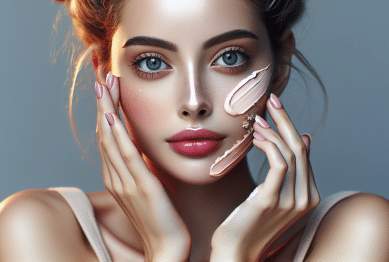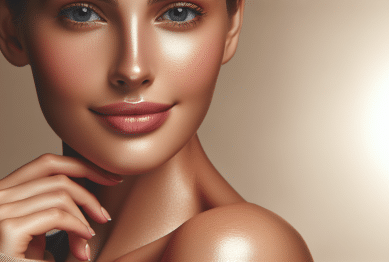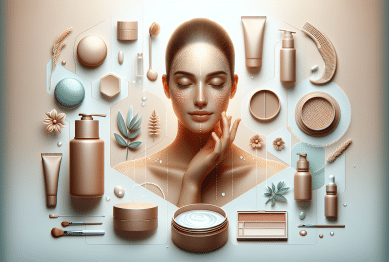Discover how small daily choices can unlock lasting radiance for your skin. This guide explores science-backed wellness habits, skincare routines, hydration tips, stress reduction, and nutrition strategies to support a natural, healthy glow from within.
Why Everyday Habits Matter for Skin Health
People seldom realize how their skin reflects their overall wellness. Achieving luminous, healthy-looking skin isn’t only about expensive creams or trendy facials. The consistent, sometimes subtle, habits practiced daily have a profound impact on the skin’s ability to look vibrant. Hydration, gentle cleansing, and restful sleep all play a crucial role. Small steps like regularly changing pillowcases or washing the face after sweating can make a noticeable difference in tone and clarity. When people weave mindful choices into their routines, the skin’s glow becomes more sustainable. These habits are accessible to most, making radiant skin a reachable goal for many individuals, regardless of age or background (Source: https://www.aad.org/public/everyday-care/skin-care-basics/care/healthy-habits).
Scientific research reinforces the importance of holistic wellness for optimal skin function. Skin is the body’s largest organ, and its needs extend far beyond topical products. Factors like stress, nutrition, and circadian rhythms influence the skin barrier’s resilience and moisture retention abilities. Long-term studies suggest that the body’s internal balance is a key predictor of external radiance. When core wellness routines falter, even the most sophisticated skincare regimens might not deliver desired results. For example, persistent dehydration or inconsistent sleep cycles often lead to dullness, flakiness, and increased sensitivity. Viewing skin health as a reflection of overall lifestyle creates lasting motivation to nurture wellness from the inside out.
Many dermatologists emphasize preventative care over intermittent treatment. Rather than waiting for an issue to appear, they guide individuals to prioritize simple wellness habits as a proactive approach. This philosophy highlights the power of daily activity, like moderate physical exercise, in improving circulation and providing nutrients to skin cells. By addressing common lifestyle pitfalls—such as skipping sunscreen or not removing makeup—individuals can strengthen their skin’s defenses naturally. Routine self-care may also bolster confidence and well-being, leading to a self-perpetuating cycle of positive choices that benefit both mind and complexion.
The Power of Hydration for a Dewy Complexion
Hydration is often a misunderstood concept in skincare. Many equate simply drinking water with glowing skin, but the impact goes deeper. Skin hydration depends on both internal water intake and the ability to prevent moisture loss at the surface. Regularly sipping water throughout the day replenishes the skin from within, while gentle moisturizers and hydrating serums seal in this moisture, keeping the complexion supple. Appropriate hydration can also smooth fine lines, reduce tightness, and impart a glassy, dewy finish. Choosing water-rich foods—such as cucumbers and leafy greens—amplifies these effects (Source: https://www.hsph.harvard.edu/nutritionsource/water/).
The role of hydration goes beyond aesthetics. Water aids in flushing out toxins that might otherwise disrupt the delicate balance of skin flora. It supports optimal digestion, circulation, and cellular repair—all of which contribute to a more balanced complexion. In environments with dry air, such as during winter heating or long flights, skin loses moisture rapidly. Adopting the habit of layering hydrating skincare—like masks or serums with hyaluronic acid—buffers the effects of environmental stress. These practices help reduce the appearance of fatigue and revive a more elastic, refreshed look day after day.
It’s important to remember that over-washing or showering with hot water can strip away protective oils, paradoxically leading to dehydration and irritation. Instead, experts recommend using lukewarm water and mild cleansers, especially on sensitive complexions. Finishing with protective emollients or barrier creams seals in hydration for longer. Some people also benefit from humidifiers, particularly at night, to keep air moist and prevent skin dryness. Personalized hydration, adapted for each skin type, sets the foundation for both comfort and radiance in any routine.
Nutrition’s Link to Skin Glow and Clarity
Nutrition plays a vital role in optimizing the skin’s natural glow. Antioxidant-rich foods like berries, tomatoes, and leafy greens help counteract oxidative stress that can accelerate aging and dullness. Omega-3 fatty acids, antioxidants, and vitamins—such as vitamin C (citrus, peppers), vitamin E (nuts, seeds), and zinc (pumpkin seeds, lentils)—provide key nutrients needed for collagen synthesis and overall skin repair (Source: https://www.hsph.harvard.edu/nutritionsource/nutrition-and-immunity/).
What people choose to eat regularly shapes the skin’s microbiome and influences inflammation levels. Diets loaded with processed foods or sugar spikes can trigger breakouts and unevenness. By contrast, balanced meals that include fiber, lean protein, healthy fats, and colorful vegetables offer the nutrients needed to maintain resilience and glow. Some studies have identified connections between gut health and certain skin conditions, such as acne and eczema. Supporting digestive wellness with probiotics and mindful food choices may therefore have visible benefits on the skin’s tone and clarity.
Meal timing and portion size matter as well. Eating regular, moderate portions helps stabilize blood sugar, which contributes to even skin tone and mitigates the risk of stress-induced flare-ups. While nutritional changes take time to show visible impact, the cumulative effect is significant. Batch meal preparation and keeping healthy snacks handy can help sustain these efforts in busy schedules. Over weeks and months, people often notice brighter, calmer, and more even-toned skin when adopting nutrient-rich wellness habits.
Sleep’s Essential Role in Skin Renewal
Few habits are as universally overlooked as quality sleep. During rest, the body triggers a cascade of repair processes that directly benefit the skin. Growth hormone surges at night, stimulating cell turnover and collagen production. Lack of sleep interrupts these cycles, leading to increased inflammation, heightened sensitivity, and the appearance of dull or puffy skin in the morning. Long-term, chronic sleep deprivation can contribute to wrinkles and decreased skin elasticity (Source: https://www.ncbi.nlm.nih.gov/pmc/articles/PMC4479905/).
Cultivating a bedtime ritual supports both mental well-being and clear skin. Habits like limiting screen time before sleep, keeping a cool and dark bedroom, and winding down with gentle stretches can improve sleep quality. Practicing relaxation breathing or listening to calming music helps signal the brain that it’s time for rest. Over time, these cues reinforce the body’s circadian rhythm and lead to deeper, more rejuvenating sleep. Well-rested skin appears firmer, brighter, and less prone to redness or irritation.
Pillowcase hygiene is another overlooked aspect of sleep-related skin health. Fabrics absorb oils, dead skin, and residues, potentially leading to clogged pores and breakouts. Changing pillowcases regularly—ideally, every three or four nights—helps reduce this risk. Consider using silk pillowcases, which cause less friction and help retain skin moisture. These small changes, though simple, can collectively support a smoother and more refreshed complexion, even after brief periods of rest.
Gentle Skincare Routines and Daily Protection
Establishing a consistent yet gentle skincare routine is a cornerstone for a radiant complexion. Cleansing morning and evening with non-stripping formulas ensures that dirt and pollutants are removed without damaging the skin’s natural barrier. Embracing minimalism means fewer products—each chosen mindfully for the individual’s skin type and concerns. Incorporating sunscreen, even on cloudy days, is essential. UV exposure can accelerate premature aging, leading to dullness, dark spots, and fine lines. Broad-spectrum SPF becomes the first layer of defense against external stress (Source: https://www.fda.gov/consumers/consumer-updates/sunscreen-how-help-protect-your-skin-sun).
Exfoliation helps remove dead skin cells but should be approached cautiously. Gentle chemical exfoliants—such as lactic or mandelic acid—often suit a wider range of complexions compared to harsh scrubs. Over-exfoliating strips away protective layers, increasing sensitivity and the likelihood of irritation. For those with delicate or reactive skin, weekly exfoliation may be sufficient. Following exfoliation, a hydrating serum or barrier-repairing moisturizer keeps skin soothed and supports ongoing cell regeneration. Adapting the routine seasonally ensures the skin remains comfortable and balanced year-round.
Protective habits extend outside the bathroom. Wearing wide-brimmed hats, seeking shade, and reapplying sunscreen during outdoor activities further reduce the risk of sun-induced damage. Even blue light from screens may disrupt the skin’s resilience, so some people opt for antioxidant-rich serums containing vitamin C or niacinamide. The routine’s simplicity supports consistency—the key factor for visible and sustainable results in skin care.
Stress Reduction Techniques That Benefit Skin and Mind
Chronic stress sends stress hormones like cortisol surging through the body, often worsening common skin issues such as acne, rosacea, or eczema. High cortisol levels can also deplete the skin’s moisture, making it more prone to dullness and inflammation. Mind-body techniques—such as meditation, yoga, and mindful breathing—provide a natural buffer by calming the nervous system. These practices are linked to better sleep quality and reduced inflammatory activity, which in turn can manifest as clearer, more resilient skin (Source: https://www.nccih.nih.gov/health/meditation-in-depth).
Community support plays a significant role in emotional wellness. Regular connection with loved ones or participation in group activities can relieve stress, fostering a positive outlook that supports the body’s healing mechanisms. Some individuals find that creative hobbies—such as painting, gardening, or music—provide distraction and bring joy, further lowering stress levels and encouraging a more radiant appearance. Even just stepping outside for a walk in nature can calm the mind and fuel a healthy glow.
Developing a toolkit of personal stress-reducing strategies ensures resilience during life’s unpredictabilities. Maintaining a gratitude journal, setting realistic goals, and seeking professional guidance when needed can all create emotional stability. When stress is kept in check, the effects ripple through all body systems, including the skin, increasing its natural radiance. This interconnected approach is at the heart of holistic wellness for beauty and health.
References
1. American Academy of Dermatology Association. Healthy habits for healthy skin. Retrieved from https://www.aad.org/public/everyday-care/skin-care-basics/care/healthy-habits
2. Harvard T.H. Chan School of Public Health. The Nutrition Source: Water. Retrieved from https://www.hsph.harvard.edu/nutritionsource/water/
3. Harvard T.H. Chan School of Public Health. Nutrition and immunity. Retrieved from https://www.hsph.harvard.edu/nutritionsource/nutrition-and-immunity/
4. Kraus, B. (2015). Sleep and skin health. International Journal of Molecular Sciences, 16(5), 10149-10160. Retrieved from https://www.ncbi.nlm.nih.gov/pmc/articles/PMC4479905/
5. U.S. Food & Drug Administration. Sunscreen: How to help protect your skin from the sun. Retrieved from https://www.fda.gov/consumers/consumer-updates/sunscreen-how-help-protect-your-skin-sun
6. National Center for Complementary and Integrative Health. Meditation: In depth. Retrieved from https://www.nccih.nih.gov/health/meditation-in-depth







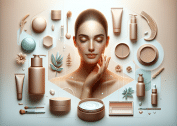
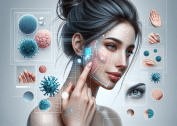

 Why Home Buyers Like You Rethink Mortgage Rates
Why Home Buyers Like You Rethink Mortgage Rates 